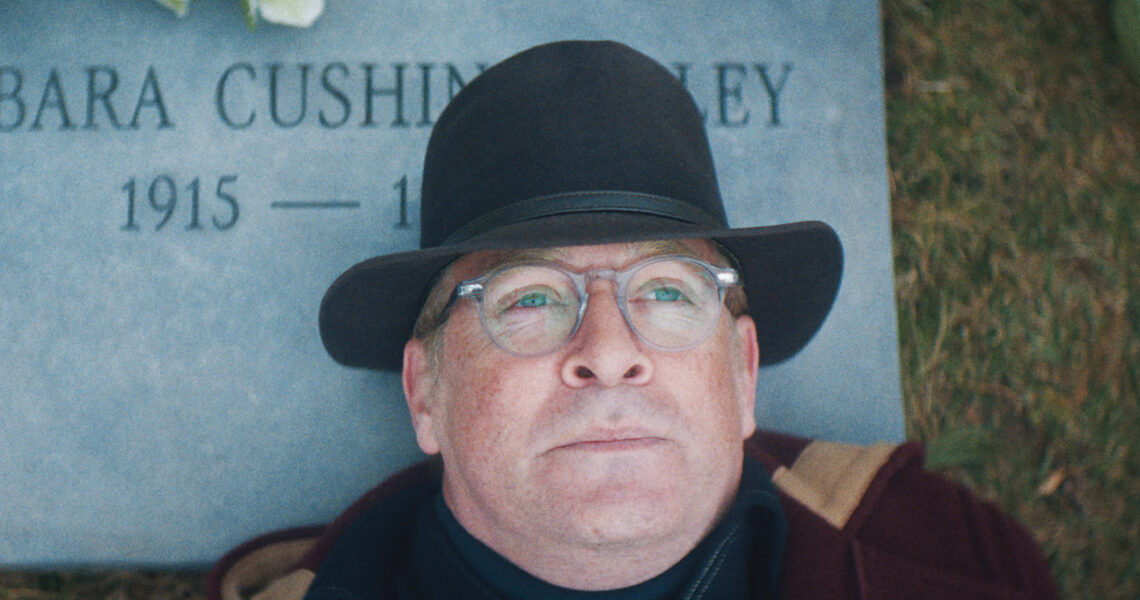Tom Hollander Learns About Truman Capote’s Allure Through ‘Feud’
Truman Capote, in his lifelong quest for infamy, left a trail of TV appearances behind for Tom Hollander to draw from for his portrayal of the flamboyant American novelist in the FX’s Feud: Capote vs. The Swans.
“If I’d known quite how much [he’s known], I would have been more nervous,” Hollander admits of not grasping the scope of Capote’s allure when he accepted the role. “I was happy in my ignorance about what a huge figure he is. It was amazing for me as a tourist, as a Brit, playing an icon of American culture in the 20th century in America. I was learning about America as much as I was learning about him.”
Hollander’s portrayal garnered an Emmy nomination, his first, for best lead actor, adding to the gratitude he feels for the opportunity to be a part of the Ryan Murphy production. “It’s not every day that you get to play such an amazing part at that level,” he says. “I’m not a spring chicken, as they say. I’m 56, and to get, in some ways, the most wonderful job of my life in the second half of my 50s is a brilliant, magical thing.”
You’ve joined a long list of actors who’ve portrayed Capote onstage and in film and television. Did you revisit any previous performances?
I did, but nothing as much as [Truman’s] own appearances. I looked at Philip Seymour Hoffman because I watched [Capote] at the time [it came out], and I admired him so much and I thought he was such an astonishing talent. I was very conscious of the long shadow that he left. And I was nervous; he’s got an Oscar. But when I looked at the film again, it made me realize that our story, Robbie Baitz and Ryan Murphy’s version of the story, was about such a different period of his life. The tone of the show was so different that I didn’t feel that I was treading on his toes or competing with him.
You’ve often been asked why you think people connect so well with this story now.
An answer that’s just occurred to me is that things are so scary in America at the moment — and uncertain. People have less confidence, whereas harking back to Truman’s story, even though Truman’s personal story is very tragic and difficult, the world that he’s in is America at its most confident. And it’s quite nostalgic to go back to that, to those cars, those clothes, those swans living like European royalty used to live a hundred years before. That was part of the fun of watching it, but the fun of making it was re-creating that world. I got to walk down the street on the Upper East Side with Diane Lane [as Slim Keith] looking astonishingly beautiful and angry and the street lined with old jalopies, ’70s cars, Chevys, Studebakers and Cadillacs. It was brilliant. It was the America I used to watch on TV when I was growing up. I think one of the enormous privileges of being an actor that people don’t talk about enough is the time-travel aspect of it. The fantasy things that happen in dreams for most people; if you’re in showbiz, that dream can become three-dimensional and real for all intents and purposes, and the more real you make it, the better it is.
Was it hard to leave Capote behind?
It was. I enjoy talking about the show because I love going back to it. Very rarely are jobs so all-encompassing, for me anyway. I was totally wrapped up in it. I would go to bed, learn the lines and go to work. Physically, it took me a long time to get my own shape back because I got heavier to do it. There were a couple of hand gestures that kept coming back for a bit. I’d find myself flopping my hand over from the elbow. But mostly I just miss [the show]. With a wonderful character like that, you’re playing someone cleverer than you, more sensitive than you, more troubled than you, someone extreme, and you walk down the road together for a bit. For a good six months, he was my buddy.
This story first appeared in an August stand-alone issue of The Hollywood Reporter magazine. To receive the magazine, click here to subscribe.

